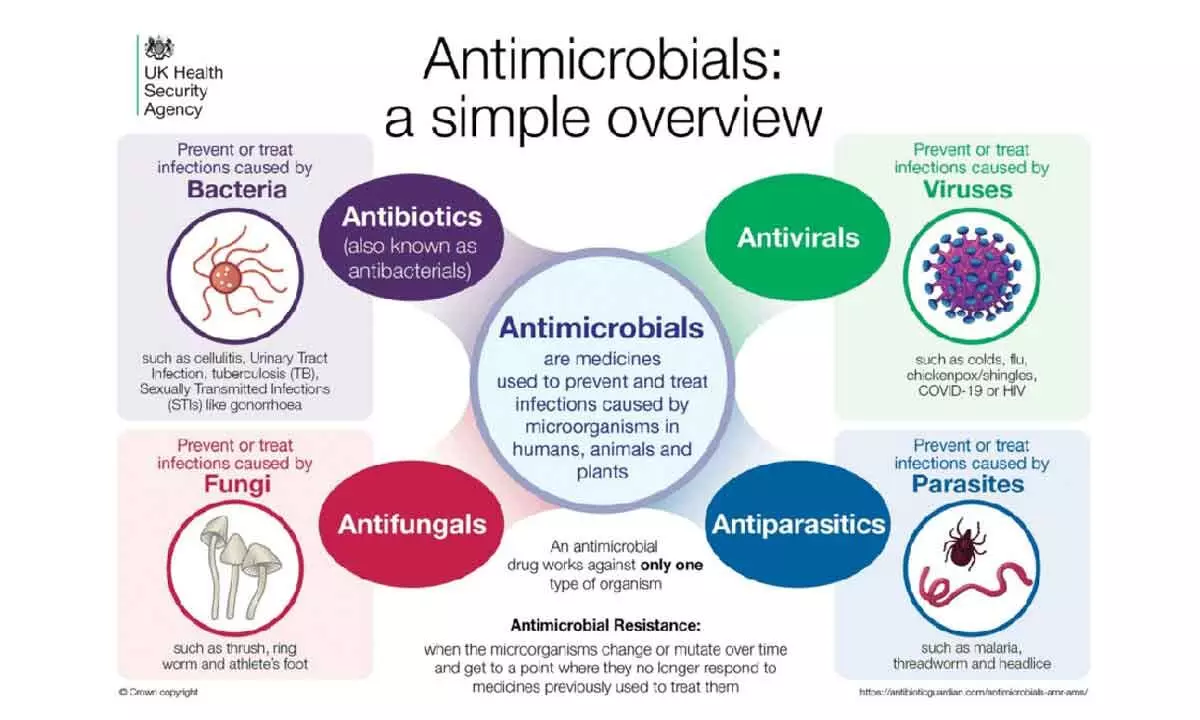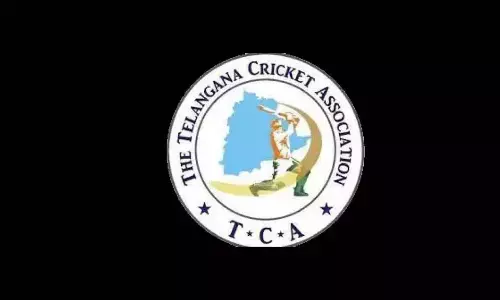Major campaign underway to contain AMR

The National Medical Commission (NMC), which replaced the Medical Council of India (MCI) on September 25, 2020, has recently taken a well-thought-out decision to frame a common module on antimicrobial resistance (AMR) containment which will improve awareness and understanding of AMR among undergraduate, postgraduate medical students, and teaching professionals of medical colleges across the country.
The National Medical Commission (NMC), which replaced the Medical Council of India (MCI) on September 25, 2020, has recently taken a well-thought-out decision to frame a common module on antimicrobial resistance (AMR) containment which will improve awareness and understanding of AMR among undergraduate, postgraduate medical students, and teaching professionals of medical colleges across the country.
By framing a common module on AMR, the Commission is aiming to operationalise the National Action Plan (NAP) on AMR which is aimed to curtail the spread of AMR in the country. Earlier in April 2017, the Union Health Ministry had come out with the NAP for curtailing AMR which needs to be launched across the country so as to bring about an alignment with the Global Action Plan on AMR with a 'one health' approach.
The NMC decision in this regard is a welcome one as AMR has been recognised as a serious and growing threat to public health globally. The World Health Organization (WHO) has identified AMR as one of the top ten global public health threats facing humanity. Misuse and overuse of antibiotics are the main drivers in the development of drug-resistant pathogens. India is among the nations with one of the highest burdens of bacterial infections. The crude mortality from infectious diseases in India is very high. It is because of this reason that the Union Health Ministry identified AMR as one of the top ten priorities for the ministry's collaborative work with the WHO.
The National Health Policy 2017 also identified AMR as a problem and called for effective action to address it. The NAP-AMR outlining the priorities and implementation strategies for curbing AMR in India was submitted at the 70th World Health Assembly (WHA) in Geneva in May 2017. AMR is also prioritized under the Global Health Security Agenda (GHSA), and India is one of the contributing countries.
Researchers found that worldwide there were an estimated 4.95 million deaths associated with bacterial AMR in 2019 alone, including 1.27 million deaths attributable to bacterial AMR.
Against this background, the NMC action is crucial as AMR is a major public health concern in India too. The emergence of resistance is not only limited to the older and more frequently used classes of drugs but there has also been a rapid increase in resistance to the newer and more expensive drugs, like carbapenems. Available data indicates to rising rates of AMR, across multiple pathogens of clinical importance, at the national scale. In 2008, about 29 per cent of isolates of Staphylococcus aureus were methicillin resistant, and by 2014, this had risen to 47 per cent.
In contrast, in countries which have established effective antibiotic stewardship and/or infection prevention and control programs, the proportion of methicillin resistant staphylococcus aureus (MRSA) isolates have been decreasing. That stresses on the importance of initiating AMR containment measures to address this grave issue. It is under this backdrop, the Union Health Ministry, way back in 2016, notified three governance mechanisms to address this challenge. These include the Inter-sectoral Coordination Committee, Technical Advisory Group and Core Working Group on AMR for technical coordination and oversight.
The Core Working Group has been activated and has drafted the National Action Plan on Antimicrobial Resistance (NAP-AMR). The NAP outlined certain strategic intervention activities which need to be carried out by the NMC, which is an Indian regulatory body of 33 members which regulates medical education and medical professionals in the country. This include reviewing and revising curricula of professionals in human and animal health as well as reviewing and developing curriculum and resources for in-service training of different professionals and allied services.
The ministry finds that because of overuse and misuse of antimicrobials, AMR has occurred even to the newer antibiotics and it has now become a global threat for the effective prevention and treatment against all infectious diseases.
The Ministry's effort in this direction assumes significance in the light of the Covid-19 pandemic as the Ministry's circular itself says that many healthcare workers were also tested positive and succumbed to the coronavirus disease due to lack of adequate infection prevention and control practices. NMC deserves kudos for taking a well considered decision to combat the menace of AMR.
















